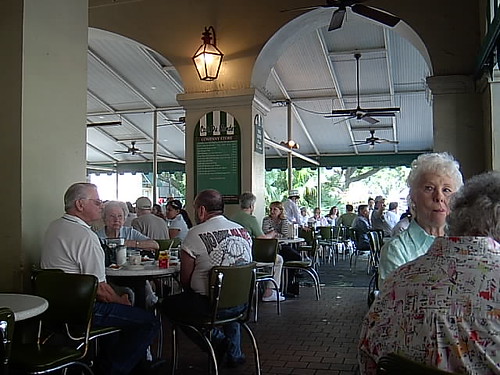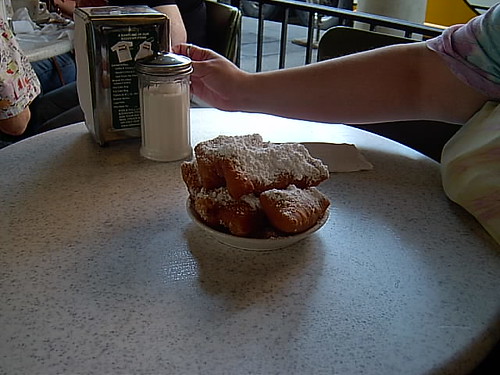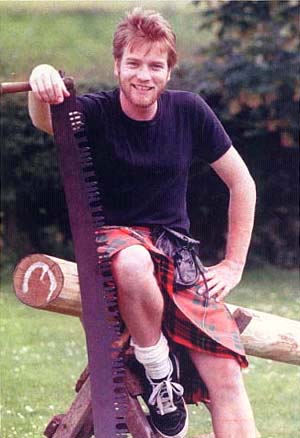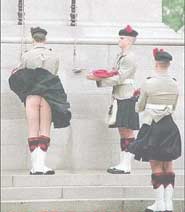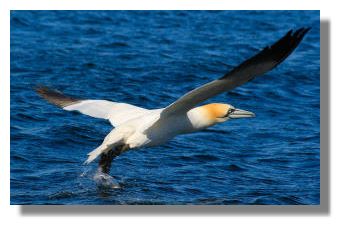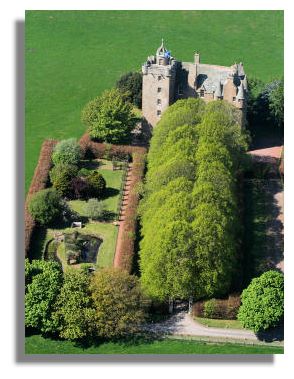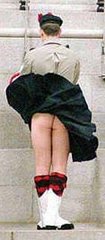I'm so pleased I've found an attractive tartan layout for my MySpace page!
Check it out.For my fellow Scotophiles, some selections from this week's
Rampant Scotland Newsletter:
Scotlands Busiest Tourist AttractionsKelvingrove Art Gallery and Museum
Edinburgh Castle
Edinburgh Zoo
Edinburgh Bus Tours
Glasgow Science Center
Blair Drummond Safari Park
National Gallery of Scotland
National Museum of Scotland
Edinburgh Royal Botanic Garden
Rosslyn Chapel
Scotland the WaveBefore 180 of the world's top surfers arrived at Thurso beach in the north of Scotland for the second World Qualifying Series event, they had been competing in the warm sunshine at Copacabana Beach in Brazil. Even though they had to wear rubber wet suits, gloves and hoods for the cold conditions of the North Sea, the champion surfers said that the Thurso waves had been the best on the tour, allowing them to reach a high standard of performance.
The Bottle ImpThe Association for Scottish Literary Studies has launched a new ezine named "The Bottle Imp" - named after one of Robert Louis Stevenson's short stories. The ezine's first issue covers a lot of ground, including an article on the historical relationship between Scotland and America and the latest publications on Scottish literature and culture.
Over the Sea to Eilean a' CheòInitial reports on a decision by Highland Council to change the name of the Isle of Skye to a Gaelic name of Eilean a' Cheò, suggested that the iconic name was to disappear from the map. It was said that all council documents would use the name and officials responding to tourist enquiries were to use the new name. It was asserted that the change would abolish the anglicised "slave" name and was welcomed by the 40% of the residents who claim to speak Gaelic. However, there were howls of protest, not just from the 60% on the island who do not speak Gaelic and would have problems getting their tongues round Eilean a' Cheò - roughly pronounced "ellan-uh-ch-yaw" and meaning "Island of the Mists".
Otter Numbers IncreaseA survey, by Scottish Natural Heritage, has shown that otters are being found in parts of the country where they had vanished many years ago. The devastation of river fish stocks by chemicals and pollution in the 1960s and 1970s resulted in a dramatic fall in otter numbers. They had also been hunted for "sport" and because they were thought to kill game birds and reduce the catches of anglers. With a population of around 8,000 otters, Scotland is home to the majority of British otters and has one of the biggest populations of this attractive mammal in Europe. The recent increase in their numbers is seen as a positive indication of clean water and reduced persecution. It became illegal in 1981 to kill otters and they are also strictly protected by European law.
Loving the Much-Maligned MothIt is said that the public image of moths is that they are brown, boring, fly at night - and eat our clothes. But the Butterfly Conservation Society (which includes moths in its work) has just launched a campaign to persuade us that we should really love moths. They help to pollinate plants, provide food for garden birds and bats - and can be just as spectacularly coloured as their better loved cousins, the butterfly. Whether the project will be successful in producing new enthusiasts - known as "moth-ers" - remains to be seen.
Lachlan's Laws - # 23That great Highland philosopher, Lachlan McLachlan, propounded a number of irrefutable laws of life, the universe and everything, usually after a "bevvy" in the Auchenshuggle Arms on a Saturday night. Here is another example: "The average woman would rather have beauty than brains, because the average man can see better than he can think."
This Week in Scottish History
- May 6 1870 - Sir James Young Simpson advocate of chloroform, died.
- May 6 1941 - Last major bombing attack on the Clyde area by the Luftwaffe; Greenock was badly hit with 280 dead.
- May 6 1999 - Election for the new Scottish Parliament. Results were Labour 56, SNP 35, Conservatives 18, Liberal Democrats 16, Greens 1, Scottish Socialists 1, Independent 1.
- May 7 1890 - James Naysmith, engineer and inventor of steam hammer, died
- May 8 1945 - Victory-in-Europe Day, end of World War II in Europe.
- May 8 1701 - Scottish-born pirate "Captain" William Kidd tried for piracy at London's Old Bailey. He was hanged on 23 May.
- May 9 1860 - J M Barrie, author of "Peter Pan" born
- May 9 1918 - John MacLean, socialist revolutionary, first Soviet Consul in Britain in 1917, honorary president of the first Congress of Soviets, tried in the High Court for sedition.
- May 9 1957 - A spectacular blaze at Bell's Brae, Edinburgh, destroyed the premises of one of Britain's largest theatrical costumiers; around 90,000 costumes were lost.
- May 10 1307 - Battle of Loudon Hill, near Darvel. King Robert I comprehensively defeated English forces under de Valence.
- May 10 1809 - Andrew Bell, co-founder of Encyclopaedia Britannica with Colin MacFarquhar, died.
- May 10 1810 - Rev Henry Duncan opened the world's first savings bank in Ruthwell, near Dumfries.
- May 10 1850 - Sir Thomas Lipton, founder of the Lipton's grocery chain who was a millionaire by the age of 30, was born in Glasgow.
- May 10 1941 - Rudolf Hess, Hitler's deputy, descended by parachute into Scotland at Eaglesham.
- May 12 563 - Community of Iona founded by Colum Cille (St Columba) from Ireland.
- May 12 1725 - The Black Watch regiment was commissioned under General Wade to police the Highlands.

